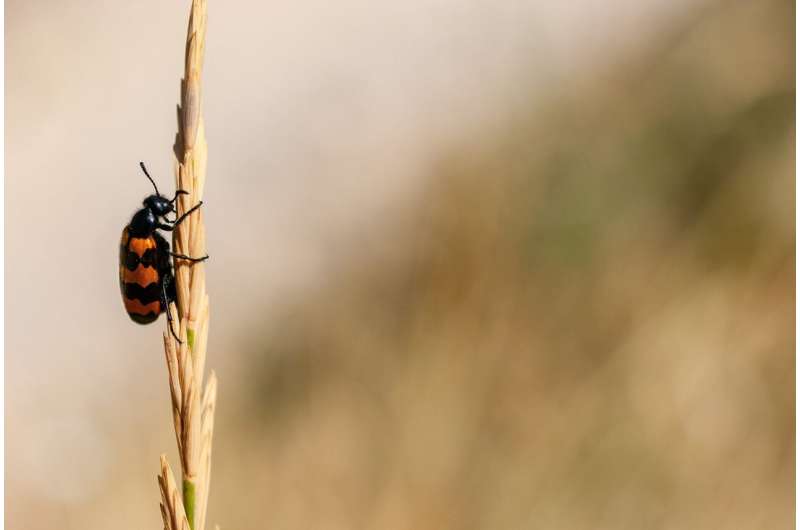This article has been reviewed according to Science X's editorial process and policies. Editors have highlighted the following attributes while ensuring the content's credibility:
fact-checked
peer-reviewed publication
trusted source
proofread
Animals who mate during a heat wave less likely to reproduce successfully, new study shows

As the planet continues to warm due to global climate change, the frequency and intensity of extreme weather events, such as heat waves, is rising. Heat waves are not just uncomfortable for humans; they also pose significant challenges for animals. Heat stress caused by these extreme events can disrupt all aspects of animal reproduction.
The findings, published in Functional Ecology by researchers from the Universities of St Andrews and Aberdeen, also shows that when a heat wave occurs during mating, offspring are smaller and have lower survival rates.
Understanding how animals are affected by climate change is vital, and the research looked at the potential effects of heat waves, and in particular, the role of the timing of a heat wave event, within an organism's reproductive cycle.
Lead author Dr. Natalie Pilakouta, from the University of St Andrews' School of Biology, said, "Our research looked at burying beetles (Nicrophorus vespilloides), which are known for their exceptional parenting skills. These beetles exhibit biparental care, which is very rare in insects.
"We studied how heat wave exposure at different stages of the reproductive cycle influenced the likelihood of breeding successfully, parental care duration, offspring size, and offspring survival rate.
"We found that the timing of the heat wave really matters: when it occurs a few days before or after mating, it has little to no effect on reproductive processes. In contrast, when the heat wave occurs during mating, parents are less likely to reproduce successfully, and their offspring are smaller and have lower survival."
The research provides novel insights and can improve the ability to make informed predictions about the ecological consequences of heat waves under climate change.
The implications of these findings extend well beyond this specific insect species, and they highlight the need to investigate these effects more broadly.
Dr. Pilakouta said, "Predicting how wild populations will be affected by climate change is a challenging endeavor. This study provides another piece of the puzzle and helps us form a more complete picture of how heat waves might shape animal reproduction and population survival."
More information: Natalie Pilakouta et al, The consequences of heatwaves for animal reproduction are timing‐dependent, Functional Ecology (2023). DOI: 10.1111/1365-2435.14386
Journal information: Functional Ecology
Provided by University of St Andrews




















